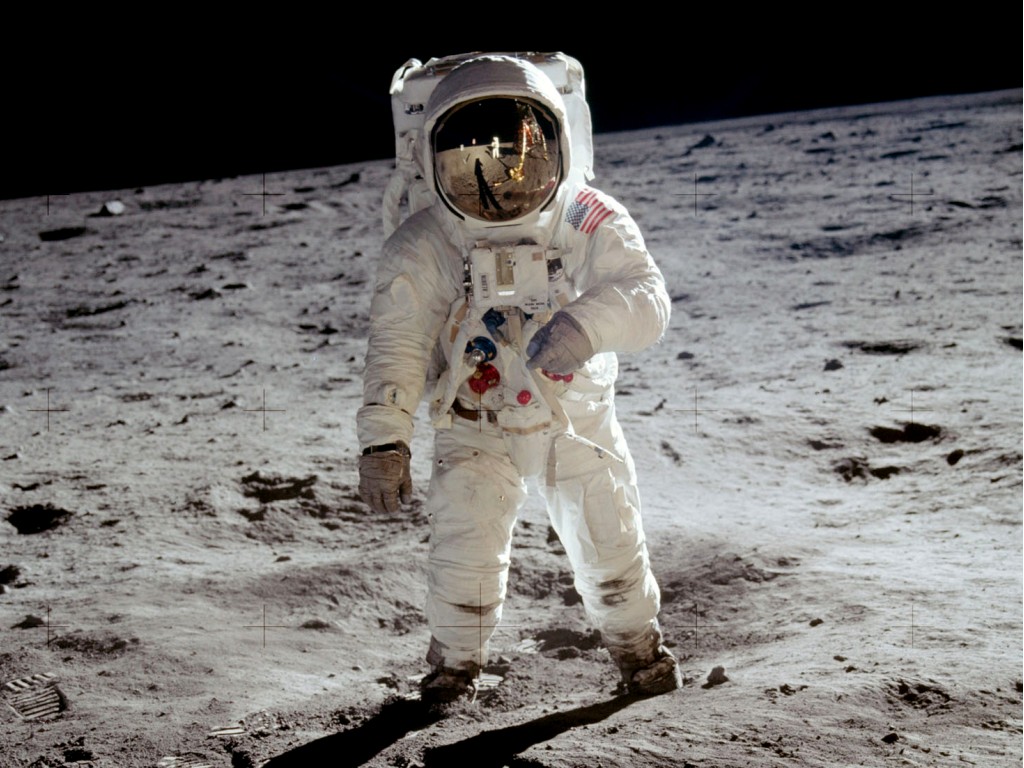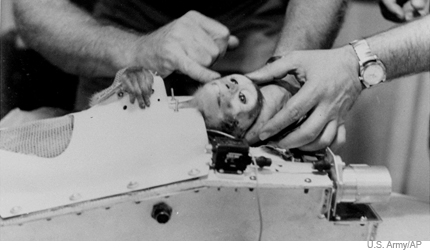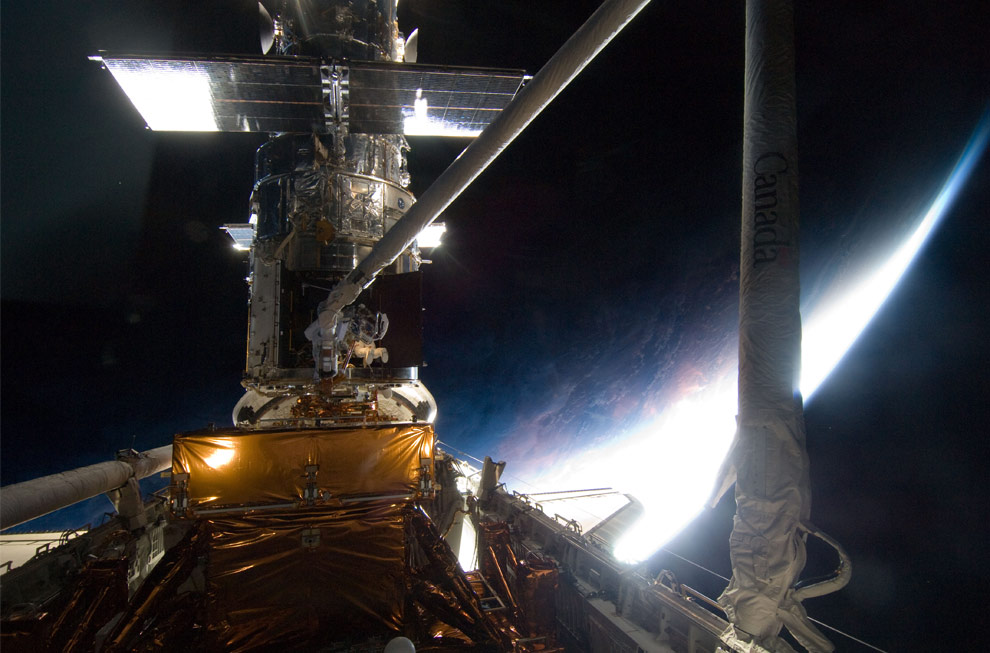“‘An automated rendezvous does all sorts of things for your missile accuracy and anti-satellite programs,’ said John Sheldon, a visiting professor of advanced air and space studies at Maxwell Air Force Base in Alabama. ‘The manned effort is about prestige, but it’s also a good way of testing technologies that have defense applications.‘” In order to keep pace with the increasingly proficient Chinese space program, President-elect Obama may be considering retying NASA to the Pentagon, “because military rockets may be cheaper and ready sooner than the space agency’s planned launch vehicle, which isn’t slated to fly until 2015…Obama has said the Pentagon’s space program — which spent about $22 billion in fiscal year 2008, almost a third more than NASA’s budget — could be tapped to speed the civilian agency toward its goals as the recession pressures federal spending.”
Hmm. On one hand, I would think making NASA yet another fiefdom of the Pentagon would greatly facilitate its ability to lock down the funding it needs for various exploratory endeavors, recession or no. And if the types of conveyance vehicles NASA needs are basically sitting around gathering dust in some Pentagon-owned warehouse next to the ark of the covenant, well then it only makes sense to combine the two programs. No need to reinvent the, uh, rocket.
On the other hand, putting the brass in charge is probably going to have deleterious effects on the types of projects NASA pursues in the future. And, in a perfect world, there’s something to be said for having a civilian space program completely outside the purview of the military. In fact, now that i think about it, won’t combining the Pentagon and NASA space programs cut back on the types of international cooperation that have guided our efforts in space in recent years? Given the current economic climate, I guess this is the best way for NASA to continue pursuing its goals in the short term. Still, there could well be trouble ahead.






